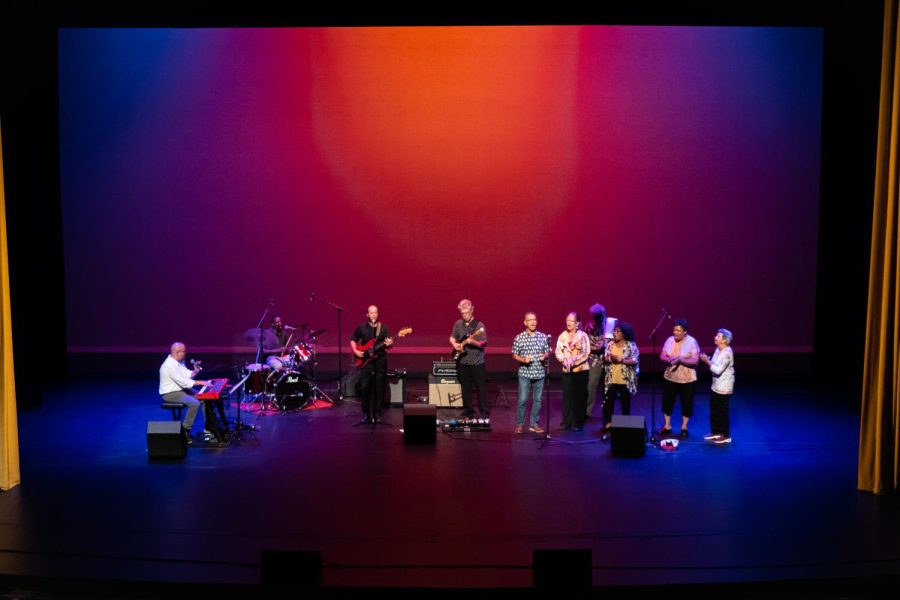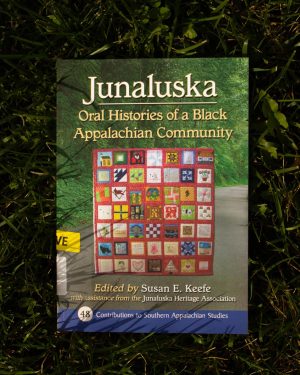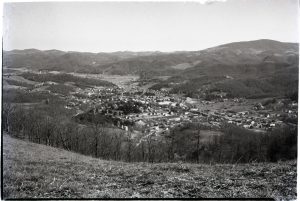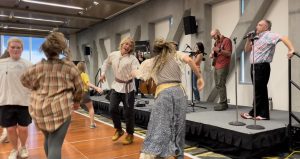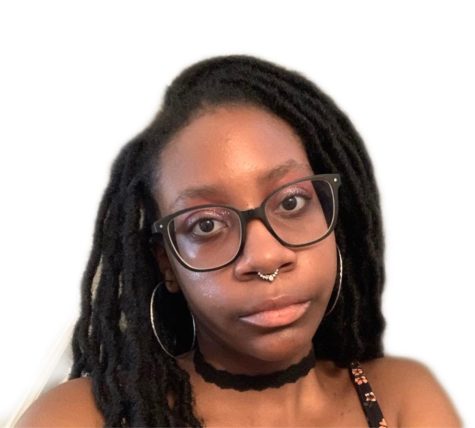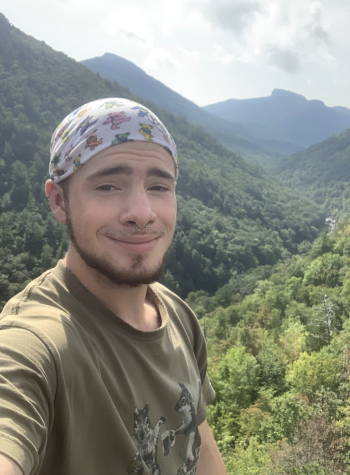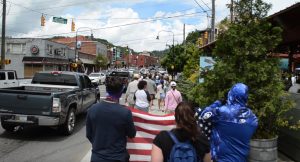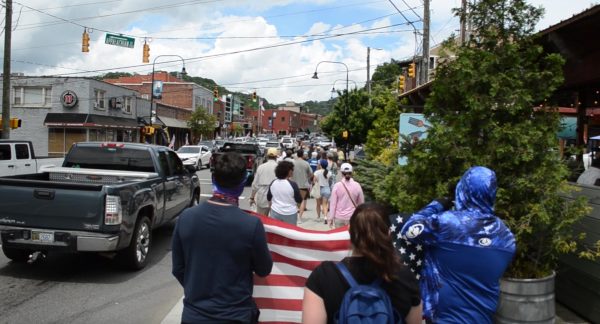Junaluska community, common reading highlighted in celebration
Members of the Junaluska Gospel Choir of Mennonite Brethren Church performing at the Schaefer Center for the Junaluska celebration Sept. 20
September 23, 2022
The Schaefer Center for the Performing Arts highlighted this year’s Common Reading book with a Junaluska celebration Tuesday, centering on one of the oldest African American communities in western North Carolina.
For the Common Reading program’s 25th anniversary, the university introduced “Junaluska: Oral Histories of a Black Appalachian Community” edited by Susan E. Keefe, a university anthropology professor. In partnership with the Junaluska Heritage Association, the book detailed the lives and histories of 36 residents of the Junaluska community. The cover depicts a community quilt made by Junaluska women in commemoration of their lineage.
Don Presnell, director of the Common Reading program and first-year seminar senior lecturer, opened the celebration with a speech, speaking to the core of the university’s common reading program.
“The members of the Common Reading committee worked very hard throughout the year to select a book that brings together students as they begin this new chapter in their lives,” Presnell said. “A book we hope that will help them connect not only to their classes, their subjects in their disciplines, and their majors but also to each other.”
Junaluska is referred to as “a village within a village” in the book as the relationship between residents was interconnected. Neighbors, friends, and distant relatives are regarded as a family to lean on and trust.
“Historically, it was a segregated neighborhood in Boone, and black residents tended to confine their activities and relationships to their own people,” Keefe wrote. “Family ties contributed to the survival of segregated the neighborhood as people could depend on one another for reciprocal aid, advice, emotional support, job referrals.”
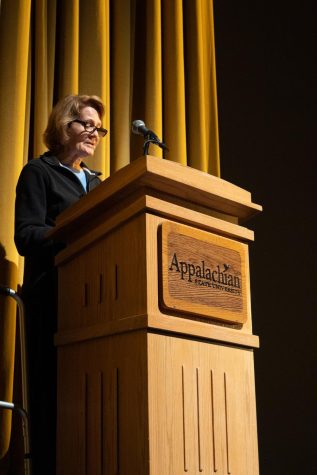
The celebration had the Junaluska Gospel Choir of the Boone Mennonite Brethren Church as special musical guests performing hymns for the audience.
Keefe addressed the audience on conceptualizing the book and its importance to the greater community.
“Our goal was to help residents do research on their own family genealogies, and community history,” Keefe said. “These are no easy tasks for African Americans descended from slaves, whose full names were rarely recorded in historical documents. This informed our decision to focus on oral history.”
Keefe utilized her own personal collection and the university’s special collections to research and prepare. McFarland’s Southern Appalachian Studies provided 48 contributions to the book.
“The book was the outcome of our coming together and finding common ground and common goals over time. I listened to what the community wanted,” Keefe said.
Keefe examined the hardships the Junaluska community has faced and their insistence to persevere.
Keefe said the book was published in 2020, the same year George Floyd was killed.
“This horrific event increased interest in the African American experience nationally and here at the local level, and boom our book provides some insights,” Keefe said. “There is much to admire in this story of a persistent people who have come through slavery and Jim Crow, discrimination and inequality, yet reject hatred and violence.”
Roberta Jackson, a member of the Junaluska community and JHA, took to the podium and thanked those involved with the book’s conception and production.
Lin Patterson and Anitra Ball, Junaluska gospel choir members, gave their thanks as well.
“I was thrilled because my mom was able to share her story with 3,000 more people,” Patterson said. “notjust my mom, but others that I’ve grown to love over the years while growing up as a community.”
Patterson challenges university students to learn about the Appalachian mountains and their nestled communities. She wants us to “join in, collaborate, and be a part” of the experience of growth.
“Junaluska: Oral Histories of a Black Appalachian Community” was nominated for the Thomas Wolfe Memorial Literary Award and received an excellence award from the North Carolina Genealogical Society. It was also featured as a part of the Boone 150th town celebration.

